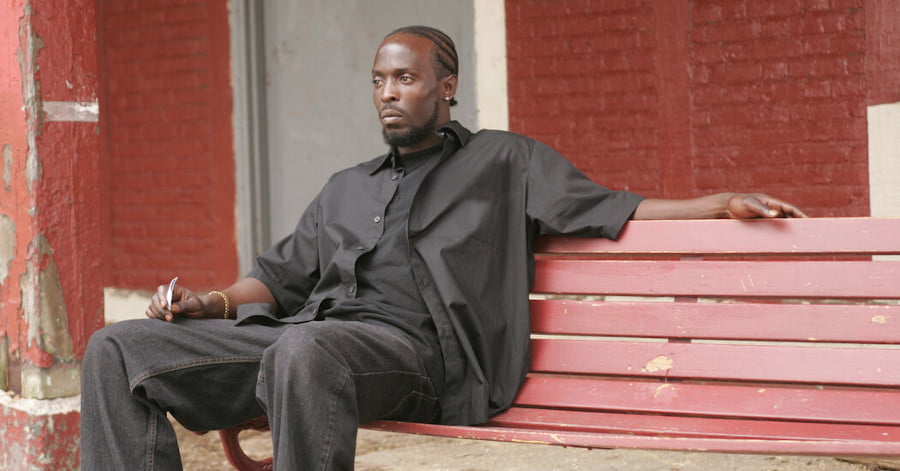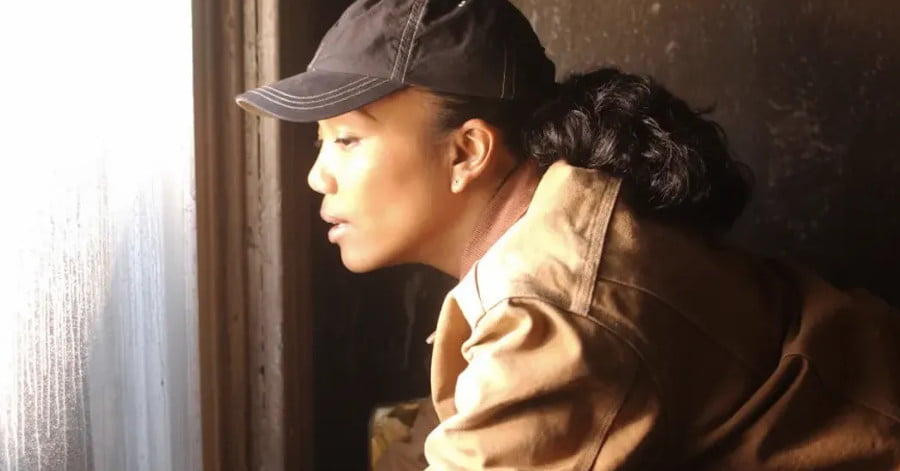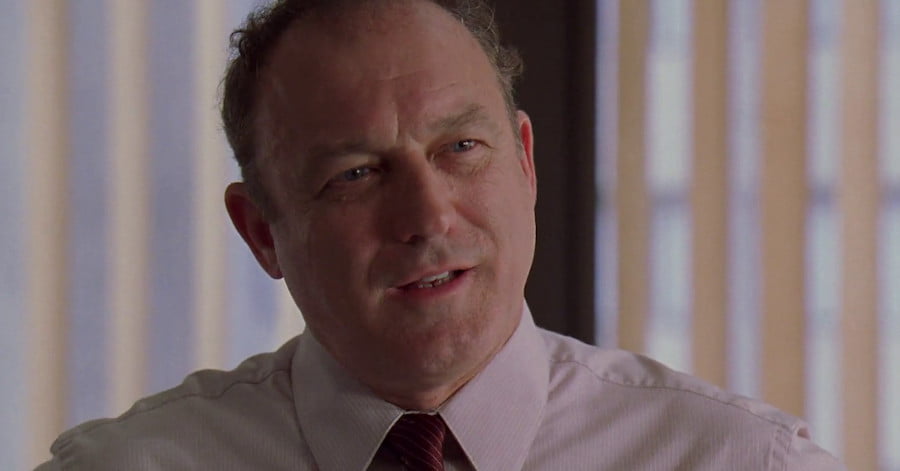There are certain shows and films that I am cautious about being too overly enthusiastic about recommending. Breaking Bad, in which a mediocre white teacher snaps and becomes the most dangerous man in the world for about twenty people, is a show that I figure I’m probably going to always want to like cautiously. The Raid, a movie that millenial white guy film buffs tout like it’s their Asian friend that justifies Asian Cinema, that’s one too. And I’m dreadfully worried about what it might communicate if I pontificate overmuch about The Wire.

The Wire, for those of you unfamiliar, is probably one of the last great shows of a particular era of television, where it went mostly unappreciated until after it was over; set in Baltimore, Maryland, it was a story about a city and its culture that was somehow both extremely continuity-driven and fantastically static. Every episode, you got some new development or continuation of an existing story beat, and yet, at the end of each season, a bunch of people were dead, a bunch of other people had advanced their goals, and broadly speaking, nothing changed.
It was praised for its actors’ excellent work, its realistic depiction of the city and its infrastructure, both social and official, and for the extremely disciplined way it was written. Characters, broadly speaking, were not ever endangered as the structural need of an episode, unless they were actually going to be permanently endangered. When a gun got pulled, people got hurt.
Similarly, the criminal enterprises of the city were depicted realistically to my understanding, as business arrangements with distribution and supply and demand problems. The economics of the drug trade, both in terms of how the money of the business is collected, distributed, and spent, are fantastically interesting, and the show depicts them as the behaviour of skilled labour being learnt on the fly with extremely high stakes for failure.
Cops are shown as both being powerless to reform the system for a host of reasons, and useless and feckless and cruel and stupid. A bunch don’t care about being good people, because they can structure the story they’re living in their own heads as being about acceptable choices. There’s lots of great scenes of the cops basically doing extremely hard work that they know is extremely pointless, but nobody is willing to say as much, and not just because ‘well there will always be crime ways’ but because they know it doesn’t matter or won’t fix anything.
The show follows systems of individual drug distribution, international transport networks, city political systems, cartels and coalitions, legalisation and lead writing, and all of it comes together at the end to leave me feeling exhausted but also very impressed. It’s compelling to watch, it makes me feel like I am making Good and Clever Media Consumption Choices to watch this Challenging Excellent Show.
It’s also a show with a lot of slurs and hate speech in it, and most of the best characters die, and even the character I probably like the best beats a black kid blind because he’s a stupid asshole.
Part of why I don’t like touting this kind of show too much or too loudly is because it feels to me like there’s a temptation to appreciate it too loudly, to feel like liking this show, which is very good at making you feel like you’re in the situations its characters are in, is the same thing as being of that place, of that time. Basically, I don’t want The Wire to be my black friend, and I don’t want to think Liking the Wire is the same thing as understanding the way people in Baltimore live.
It’s also just very hard to put my whole ass behind a show where one of the first lines of dialogue is a white guy bellowing a slur at another white guy that’s meant to degrade the people both of them are officially working to protect (but we know they’re really not).
If I’m going to talk about The Wire, then, I want it to be about something that isn’t just ‘oh, The Wire is so great.’ I want it to be part of the kind of writing I do, something that follows from what I already talk about.

Anyway, so there are three major queer characters in the Wire and they range from awesome Robin Hood Vigilante to Cop to Worse Cop and they all meet bad ends. One ends up shot in the head in a random act of violence in one of the shows’ most important moments of undercut anticlimax. The other two remain being cops, and what’s more, they like it.
I’m not going to try and go into the story and explain these characters to you – Omar, Kima and Rawls are all structural to the series from the first season. They’re excellently portrayed and showed in a variety of situations, and show queerness in a host of different ways.
Omar, who doesn’t have the protections the police pretend to afford the citizens, is subject to violence for what he does, but that violence is amplified by homophobia, which he suffers regularly — on the other hand, he’s regularly shown getting boyfriends, and he’s shown kissing them and getting in and out of bed with them. It’s not common, but it’s still enough that I was surprised for the time. People reduce him to his gayness but the show doesn’t agree with them — he has a host of opinions and attitudes and plots about how he maintains his lifestyle of banditry.
Kima suffers microagressions and homophobia, even from her friends. As a cop in this situation, she must think it’s positively torturous to have to suffer this kind of non-stop indignity from people whose position is ostensibly to ensure she can continue experiencing a free and healthy life, and therefore, as a cop, must think that that’s fine. But her story also goes on to the difficulties of balancing work and life and raising a kid and relationships and shows a lesbian relationship that has a breakup… for an entirely sensible reason in its space. It’s interesting and it’s handled in this really mournful way.
Rawls goes most of the series without his queerness being even vaguely examined, even noticed. You only see it if you’re looking at him in the background of things. Some of his signifiers, like the way he talks about his infant son, or the wedding ring on his finger, or the photos of his family, may even seem to be directing you to the idea that he’s straight. Then you can see in the background graffiti in a cop bar, the epithet RAWLS SUCKS COCK, which of course, is one of those ways that this deeply written, sophisticated show reveals truths about its characters in a subtle way. There’s also the scene where he’s at a gay bar hanging out and laughing at the behaviour of a straight patron, I guess.

These characters were in their story, in their time, in that space, back in 2002. There was no need for the characters to be treated as separate or distinct from the rest of the cast in any way. They were along the ride for the whole narrative, while they were still at threat the way anything else in the story was.
Sometimes it’s easy to get reductive about this; Omar was only seen full-frontal naked twice, compared to the four scenes (or whatever) of strippers we see, and therefore, we can see a way the show Did A Bad Job. Or that his lovers regularly die, and he dies, so that’s Bury Your Gays. Snoop is introduced only in the tail end of the story, and she dies, so that’s more Gays That Are Buried. That Rawls suffers the fate of Continuing To Be A Cop and we don’t get an impassioned story about him resolving his latent bisexuality in his own mind is just more of the way that These Stories are Being Done Wrong.
I don’t think The Wire is an important queer text, by the way. I think it’s just a really interesting series, and part of how it’s interesting is the way that it includes a bunch of queer characters who are just… there. It’s the kind of thing I honestly want to see: Characters whose queerness is clear and explicit but the characters otherwise are characters in the space of the story, behaving in the way the story expects them to behave. I didn’t even know they were there in the story when I started to watch it — so much was made of the realistic depiction of gangs and cops and so on that nobody saw fit to mention to me that there’s multiple ongoing queer narratives.
It’s kind what I want, at least at this point. I want to enjoy the genres I already like, and I like for them to be well made and intresting, and I’d appreciate it if they could recognise the basic humanity of queer people.
Just to be clear, this isn’t ‘the stuff’ that stood out to me about The Wire. The Wire is full of interesting characters I really like, and the nature of the show is you have to sort of accept that the characters you like the best are absolutely scum at some point, because everyone in this series is. But in that space… they did the job. Everyone could do this. It doesn’t need you to do some sort of special supernatural effort or The Queers Whisperer to make queer characters work in a narrative.
Go the Wire, well done, I guess.